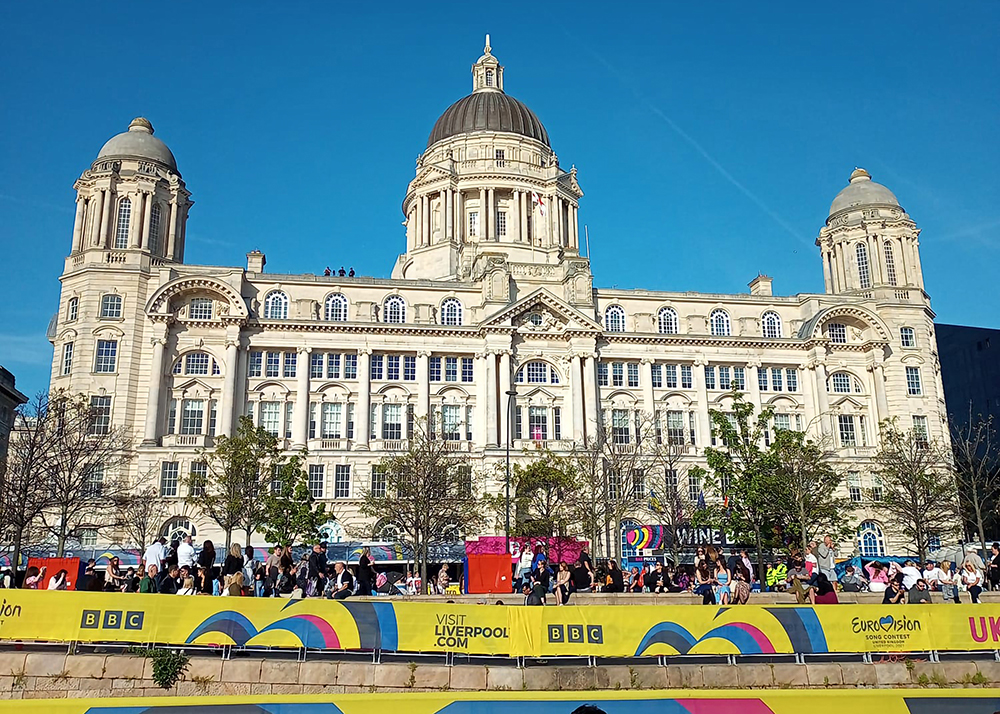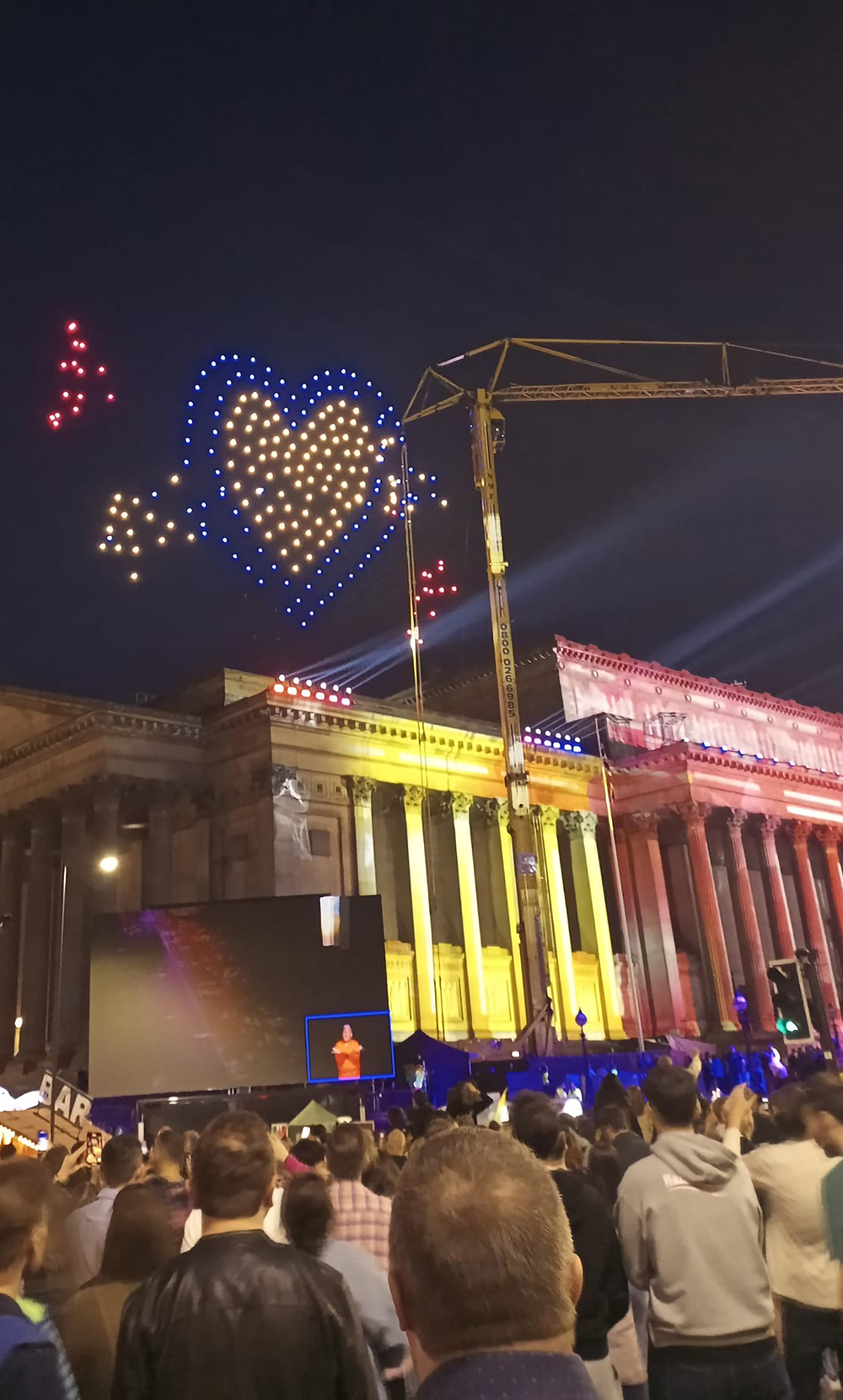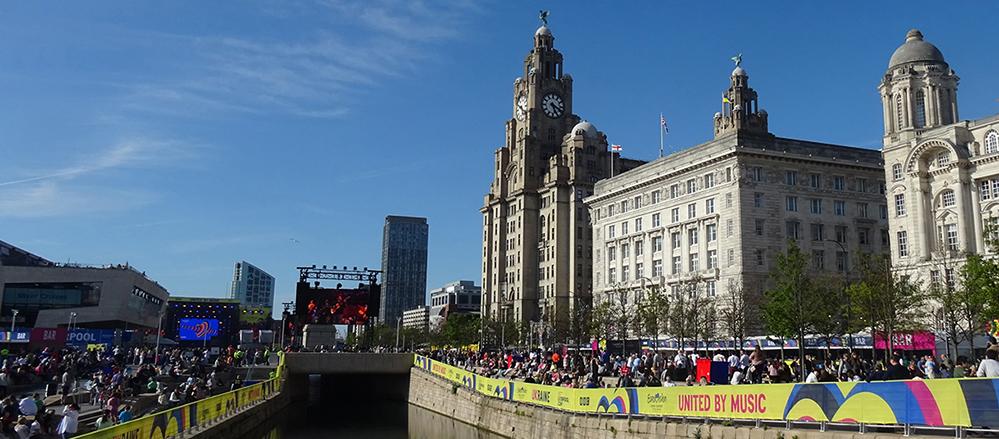


A celebration of everything camp that even Europe’s most homophobic countries get excited about. What could this be describing other than Eurovision?
Ever since its debut in 1956, the Eurovision Song Contest has become increasingly flamboyant, with sequins and glitter now an integral, if not compulsory, part of every performance. Another aspect that has become increasingly evident over the decades is its popularity among the LGBT+ community. Coincidence? I think not!
This May, Liverpool was proud to host the 67th edition of Eurovision, after the UK’s singer Sam Ryder won the jury vote and came second overall to Kalush Orchestra from Ukraine which, for obvious reasons, was unable to host the contest this year. Since LGBT+ themes and performers now make up more Eurovision contenders than ever before, I decided to look into what makes Eurovision so gay.
Before the birth of Eurovision, international competitions had tended to focus on one thing and one thing only: sport. Muscle-bound heterosexuals competed to see who could run faster, hit harder and jump further. Eurovision provided a breath of fresh air. It was a platform for people to represent their country and compete internationally but with points awarded based on artistic merit rather than brute strength.* As performing artists flocked to Europe’s stage, so did the LGBT+ community.

Eurovision represented the antidote to an era in which men were expected to show extreme emotional restraint and where there was little opportunity to live outside social convention. The glitz and glam resonated with many gay men wanting to separate themselves from the norms of masculinity.
Before the rise of budget airlines and cheap holidays abroad, Eurovision was a window into Europe. For one night a year, people across the continent could catch a glimpse of life in other countries and cultures. Shining a spotlight on diversity has always been a core value of Eurovision, and the melting pot of cultures it produces has created an environment where being different is celebrated. It was this environment of diversity and acceptance that was so appealing to LGBT+ fans across the continent. UK organisers strengthened the connection between Eurovision and the gay community by sending out a message of solidarity when Birmingham hosted the contest in 1998. By placing the studio audience next to the stage and in front of the cameras it became immediately obvious to the continent that the audience was largely made up of visibly gay men.
All Eurovision fans – and probably many people who actively try to avoid the show too – will remember drag queen Conchita Wurst’s win for Austria in 2014. An incredibly glamorous bearded lady in a glittering golden dress, her performance can only be described as “very Eurovision”. However, she was far from the first LGBT performer to grace the stage – or even the first to win.
Iceland was the first country to be represented by an openly gay singer, Paul Oscar, in 1997. The following year, Israel won with the contest’s first trans performer, Dana International. However, decades before the blanket of rainbow flags that cloak Eurovision arenas today, Jean-Claude Pascal won the contest for Luxembourg in 1961 with a song that told the sorry tale of a same-sex couple who are unable to openly display their love for one another. At a time when homosexuality was still criminalised throughout most of Europe, including the UK, his song sent a message of solidarity to the LGBT+ community.

This year, 162 million people from the world tuned in and sang along to their favourite songs. At least four of 2023’s performers were openly gay or bisexual and the show was co-hosted by the much-loved Graham Norton, who is also gay. As several European countries take giant steps back in the progress of LGBT rights, hopefully the Eurovision will serve as a reminder that love is love, whoever you are.
Genevieve Silk
*Although, as many a result has shown, artistic merit is not always a prerequisite for a Eurovision win. Well-oiled pectoral muscles, on the other hand, certainly seem to be of some assistance.